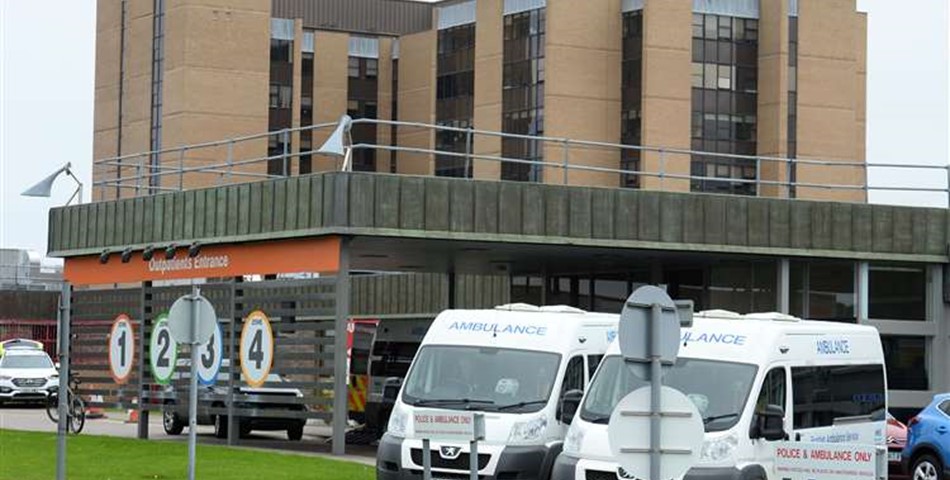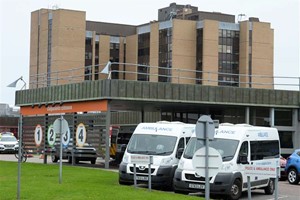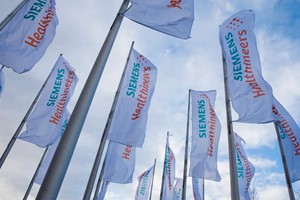When people think of a hospital, most do not associate it with chimney stacks blackening the sky with filthy hydrocarbons, polluting the local atmosphere, and driving global warming.
Unfortunately, though our pollution is invisible, we are actually doing that every day.
The NHS contributes over five per cent of the UK’s annual carbon footprint, and the Centre for Sustainable Healthcare estimates that 80 per cent of that is attributable to clinical decisions and models of care.
Most healthcare workers have no idea what environmental effect their decisions have because, unlike health systems in Scandinavia and the Netherlands, we do not ask the companies who supply our drugs and equipment to tell us the details of their carbon footprint or impact on ecosystems.
That’s a bit like buying a very expensive car (£2.4 billion in Scotland spent on healthcare procurement), but without asking whether it has an electric battery or a diesel engine.
However, some things are changing for the better because we are finding out more about the drugs we use.
In 2016, one day’s general anaesthesia in one theatre released the carbon dioxide equivalent of driving 4672km. Today that figure is less than 20km.
This was achieved by buying more efficient machines and switching to less polluting anaesthetic gases, without detriment to patient care or safety.
Raigmore became the first hospital in the UK to “ban” the most polluting anaesthetic gas – Desflurane.
We started a group of enthusiasts, the Scottish Environmental Anaesthesia Group, and have spread the word on this idea across the country, estimating that we have saved the equivalent of nine million kilometres of driving over the past year in Scotland, with 11 million kilometres still to go to reach zero.
Nitrous oxide, a potent greenhouse gas and ozone layer depleter which lasts 120 years in the atmosphere, is the next target for action.
We can abandon its use where possible, and where there is no other option, we hope to get funding to install machines which can “crack” it back to harmless oxygen and nitrogen before release.
John Burnside and Ruth Innes, our environmental team in NHS Highland, introduced the first solar-powered cardboard compactor and a surgical fluid suction system that hugely reduces clinical waste transport miles and cuts down incineration of plastics.
A move away from oil to woodchip and gas for heating our buildings is ongoing, and all new healthcare facilities should be compliant with the zero-carbon goal.
In partnership with UHI and industry, the One Health Breakthrough Partnership are studying water at Caithness General Hospital (CGH), looking for medicines affecting aquatic ecosystems, and CGH became the first hospital in the world to be awarded Alliance for Water Stewardship accreditation.
A local surgeon, Professor Angus Watson, published a paper pre-pandemic which looked at the use of video-clinics for regular review appointments for some surgical patients.
Over 18 months, just 88 patients saved an incredible 72,000km of travel by going digital.
For many patients this is a convenient way to manage their condition, and less disruptive to daily life, so we are looking to expand the option to choose a telephone or video consultation for those that desire it, as part of the recovery from Covid.
So NHS Highland has taken some big steps to address some of healthcare’s problems, but there is still much to do.
Looking forward, the Scottish Government’s climate emergency and sustainability strategy will help to formalise the environmental enthusiasm among NHS Highland staff, and support the transition to sustainable healthcare.
Ultimately, it will take a change in our collective attitude to patient care.
Jodi Sherman, an anaesthetist from Boston, USA, describes it well: “The ‘patient’ is more than the human being under our immediate care. The patient includes the family, the neighbours, the community, the country, and the world... Accepting responsibility for environmental stewardship puts patients first.”










